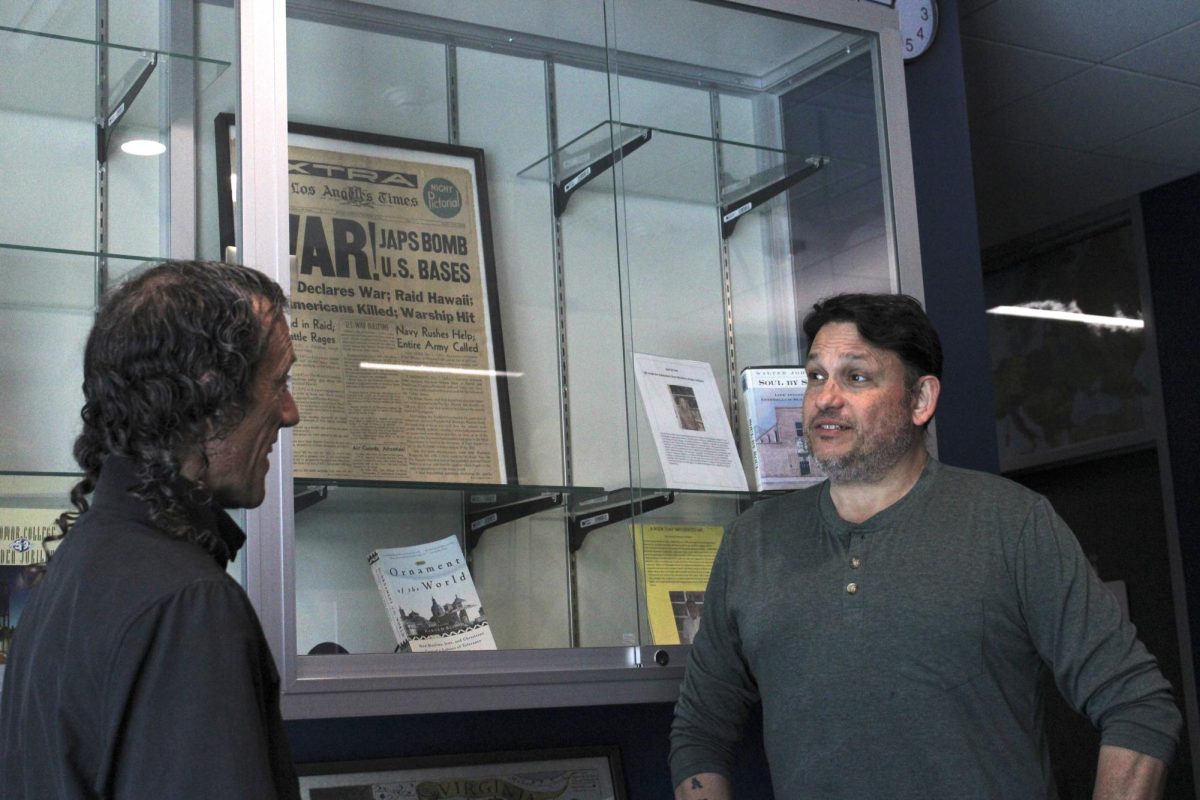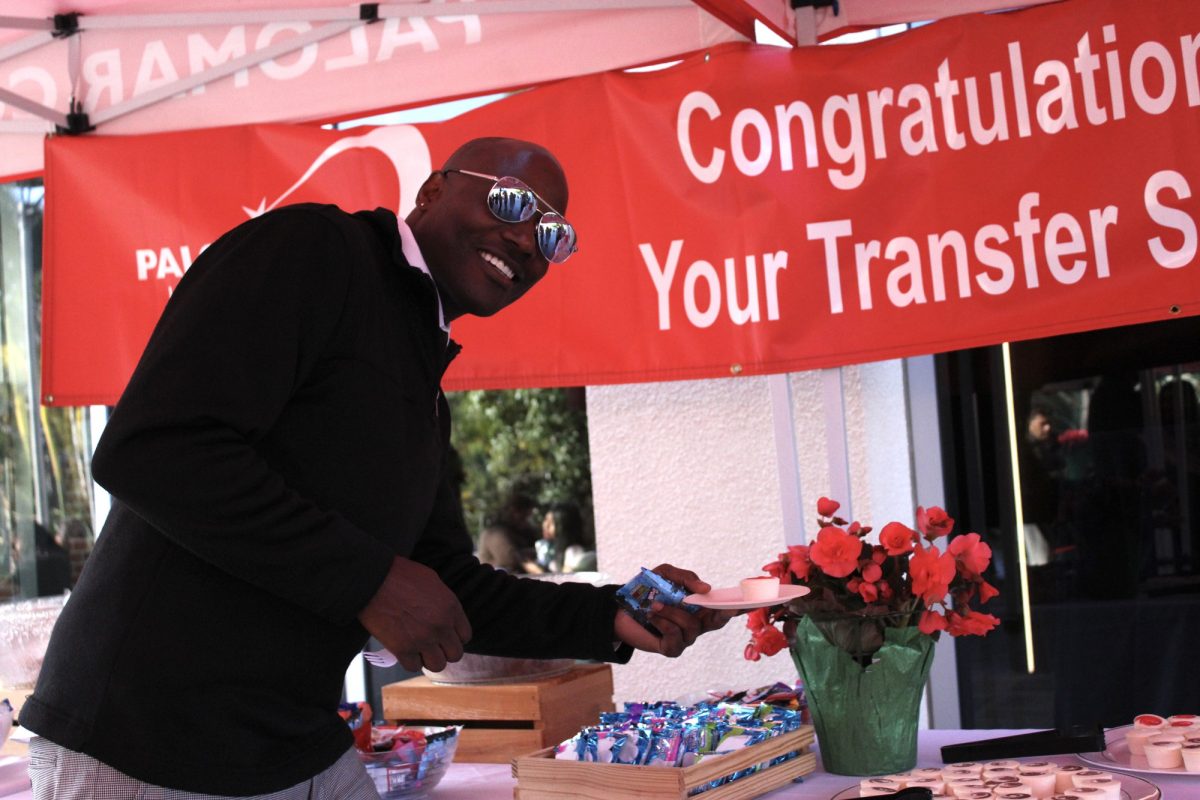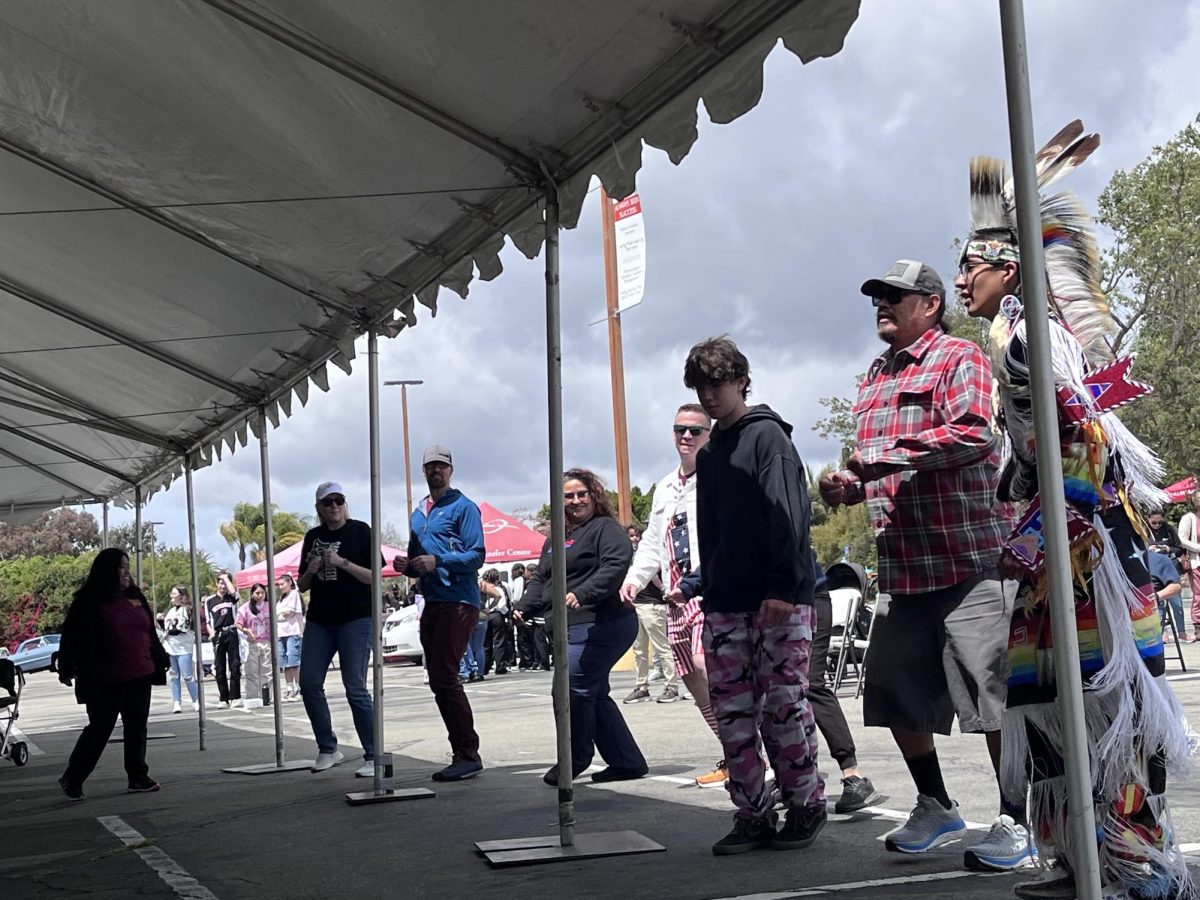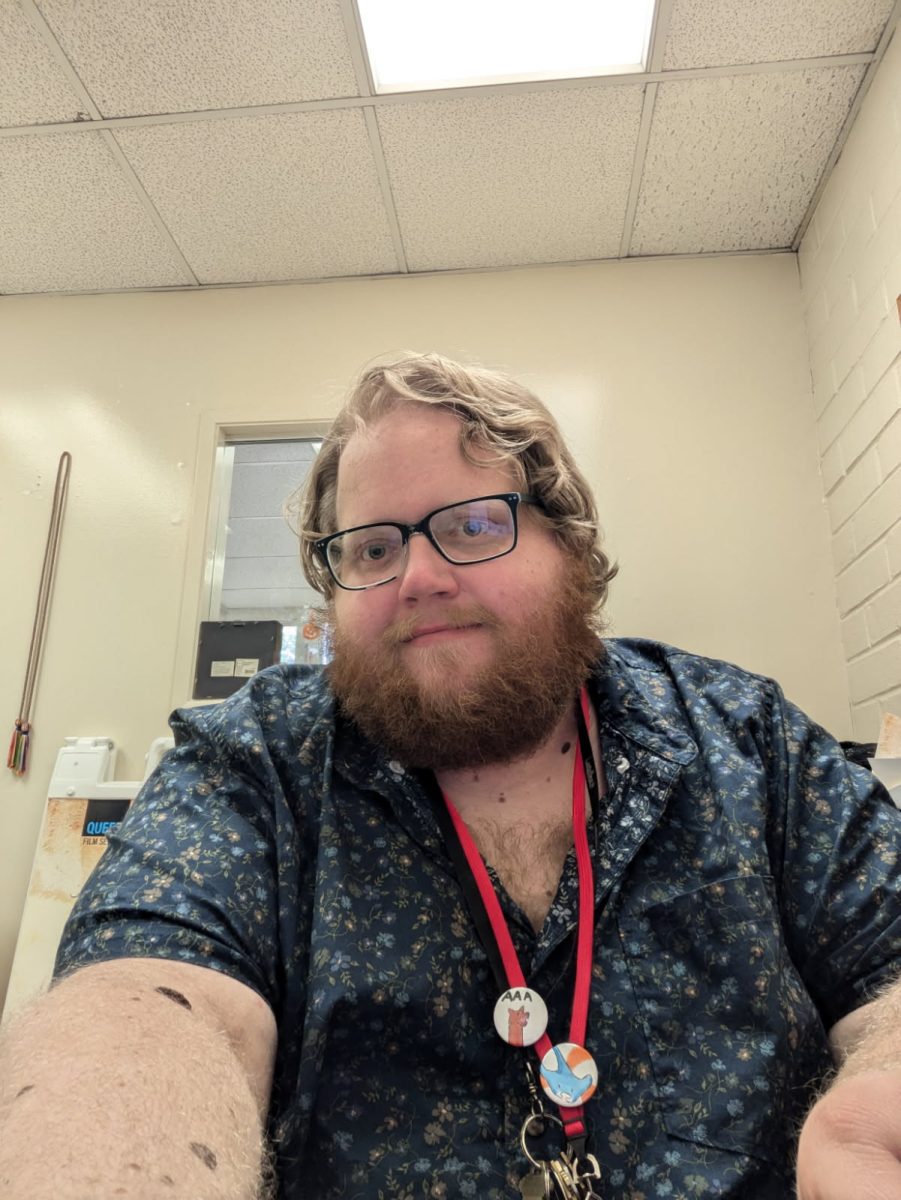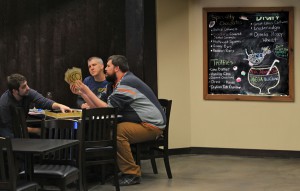
Role Playing Games. For some, this phrase conjures up images of socially maladjusted recluses, dwelling in basements. But for many others, the phrase means something entirely different. Escape, adventure, action and, believe it or not, social connection. That is what the Tabletop Gaming Club at Palomar is all about.
Started by cinema major Ian Laughbaum and his friend Greg Hoey this semester, the Tabletop Gaming Club is a place where students can come together, to commiserate with like-minded individuals.
Specifically, the club is “an organization that promotes, encourages and helps organize games that are ultimately played off campus,” club adviser Bill Jahnel said. The games Professor Jahnel refers to are role playing games (RPG for short).
To put an even finer point on it, club president and co-founder Laughblum said: “The focus of the club, we really wanted it to be not so much people who already knew how to play the game, but people who don’t and really want to get into it.”
Perhaps a little back story on role playing games might be in order, for the otherwise uninitiated. RPG’s are games, sort of like board games with no board. Players create characters that they will play as. It could be almost anything, depending on the game you are playing. Human, robot, vampire, paladin, mage, elf, etc. Whatever you want to be.
During this creation stage, players roll dice for their character’s “stats,” such as charisma, dexterity and luck. Once the characters have been created, it is all up to one particular player to create a scenario in which the characters that the players have created for themselves will exist.
The players then role play as their characters, navigating their way through whatever quest their Dungeon Master has set out for them. Some players take this role playing more seriously than others. The point is to immerse yourselves into a game that is complex and dense enough that you feel as if you are actually having these adventures with your cohorts.
Typically, these games have a significantly higher level of difficulty than your average board game. Connect Four, Clue and Monopoly are a far cry from games like Dungeons & Dragons, Gamma World, and Shadowrun in terms of difficulty.
On this very phenomenon, Laughblum remarked: “We (Laughblum and club VP Greg Hoey) noticed on campus whenever we would talk about D&D (Dungeons & Dragons), there are so many people who have always wanted to try it, or get into it, but have never found the group.”
That is one of the reasons the club was founded. To provide a resource for students who may be interested in learning about, or participating in these type of games, yet who don’t know much abut how to play, or even where to start.
To someone on the outside looking in, the rules for many of these games can seem positively baffling. The Tabletop Gaming Club seeks to put those potential players at ease. The club’s members, and advising faculty, are all very knowledgeable about a number of different games and gaming systems.
Once you have figured out what you want to play, and how to roll characters, the next obstacle is to find a group to play with.
Unlike most other tabletop games, an RPG session typically will last anywhere from 3 to 8 hours or more. Traditionally, groups of people that play these games tend to stick together, as the campaigns can be very lengthy.
In addition, the groups stay relatively small, because that’s how games tend to work best. So finding a group of like-minded individuals, who want to play the same game, with the same level of enthusiasm, and for the same lengthy amount of time each week can be challenging, players say.
Yet another function of the club is to help connect people in need with each other. Those looking for players to join a campaign they wish to start, and those looking for a group to join. This can be of even greater benefit to students who have an interest in these games, yet who lack the social grace or confidence to try and drum up some interest on their own.
So here comes the tabletop club. Offering those who are so inclined safe harbor within its walls. Giving role players a safehouse on campus, where they are free to be themselves.
Campus clubs can give a student a place to feel like they belong while they are struggling to find their social footing out there in the interpersonal quagmire of campus life. Also, participation in campus clubs helps to pad the old resume, and 4-year schools love seeing that kind of stuff on a student’s application.
If you enjoy RPG’s, or are looking for a way to learn more about them, or you are just looking for a spot on campus where kindred spirits can meet and greet, the Tabletop Gaming Club awaits. The Tabletop Gaming Club meets every Monday from 3:30 to 4:30 p.m. in room MD-305 on Palomar’s main campus.



